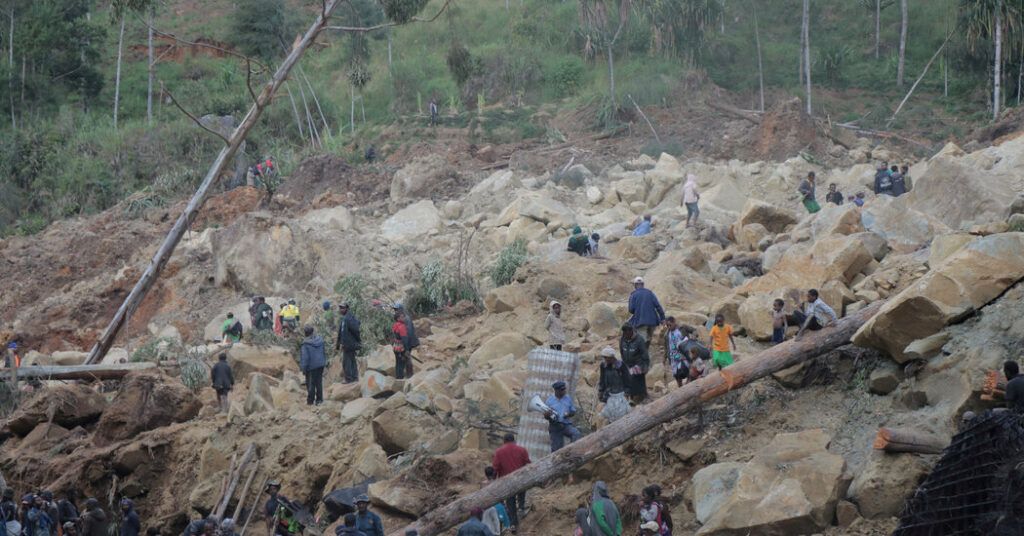Intertribal fighting also increases post-disaster security risks.
Ruth Kissam, a community organizer in Enga province, said huge boulders fell from one tribe’s land into a residential town occupied by another tribe.
“There will be tensions,” she said. “It’s already very stressful.”
Even before the disaster, the region had been experiencing tribal conflicts, causing people to flee surrounding villages, with many ending up in communities buried by landslides. Last September, much of Enga was under government lockdown and curfew, with no flights in or out.
Now, as the search for the dead and the living continues, anger and violence are growing.
Seran Aktoprak, head of mission at the International Organization for Migration (IOM) office in Papua New Guinea, said a brawl broke out between the two tribes on Saturday morning, resulting in deaths and dozens of houses being burned. . He added that threats of violence make it more difficult to provide aid.
Papua New Guinea officials also stressed the need to remain calm.
“After inspection by the team, it was determined that the damage was severe and required immediate collaborative action by all participants,” a government official who inspected the site said in the letter.
The landslide hit the village around 3 a.m. on Friday while many residents were sleeping. Some of the boulders burying homes and cutting off major highways are larger than shipping containers. Even in a region prone to severe storms and earthquakes, the landslides caused intense grief at home and abroad, including at the White House.
“Jill and I are heartbroken by the loss of life and devastation caused by the landslides in Papua New Guinea,” President Biden said in a statement following the disaster. “Our hearts go out to all the families affected by this tragedy and to all those who put themselves at risk to help our fellow citizens. first responders pray.”
Christopher Cottrell contributed reporting.

